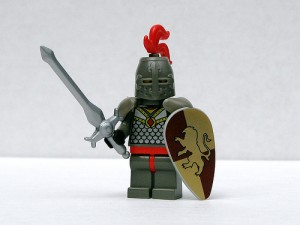Senate Not Office of Trust
 Eugene Volokh‘s readers wonder whether Senator Teddy Kennedy needs permission from Congress to accept a knighthood from England pursuant to article I, § 9 of the Constitution’s pronouncement that “no Person holding any Office of Profit or Trust under [the United States], shall, without the consent of the Congress, accept of any present, Emolument, Office, or Title, of any kind whatever, from any King, Prince, or foreign State.” While conceding he’s no expert, he thinks not.
Eugene Volokh‘s readers wonder whether Senator Teddy Kennedy needs permission from Congress to accept a knighthood from England pursuant to article I, § 9 of the Constitution’s pronouncement that “no Person holding any Office of Profit or Trust under [the United States], shall, without the consent of the Congress, accept of any present, Emolument, Office, or Title, of any kind whatever, from any King, Prince, or foreign State.” While conceding he’s no expert, he thinks not.
- Article II, § 1 provides that “no Senator or Representative, or Person holding an Office of Trust or Profit under the United States, shall be appointed an Elector.” This strongly suggests that “Senator or Representative” and “Person holding an Office of Trust or Profit” are two different things.
- Article I, § 6, provides that “no Person holding any Office under the United States, shall be a Member of either House during his Continuance in Office.” This likewise suggests that “Office under the United States” doesn’t include membership in Congress.
- There’s 1790s Senate precedent for the proposition that a Senator is not a “Civil Officer[] of the United States” for purpose of impeachment, though the question is not free of controversy.
So, there you have it: Even the Framers didn’t trust Congress.
Photo by Flickr user Dunechaser, used under Creative Commons license.

Before the Droitetoids get all cranked up, it’s an honorary knighthood (and not the real thing, so he won’t becalled “Sir Teddy”). Some other Americans knighted:
Douglas Fairbanks Jr.
Bill Gates
Rudi Guiliani
Billy Graham
Alan Greenspan
J Edgar Hoover
Bob Hope (born in England but a US citizen)
Henry Kissinger
Andre Previn
Ronald Reagan
Norman Swarzkopf Jr.
Steven Spielberg
That is thanks to Van Helsing at Moonbattery.com.
It’s not surprising that this individual, regardless of of his past personal life would be selected for honor in Socialist Western Europe.
You and I would still be sitting in the jailhouse, not waiting for Knighthood, but waiting for good-time to be released.
sam, were any of those people holding office at the time? If not (and many of them appear to have never held office), you’re engaged in obfuscation of the issue.
Dave Schuler must be tied-up since he has not already pointed out that political office is beginning to resemble an hereditary entitlement.
There, I mentioned it for him.
And so, what is your point?
None of them were scummy slime bags like Ted Kennedy.
Ah, you right if I was addressing the legal question, but I just posted the list to show that the honor, as bestowed on Americans, is not uncommon. But now that you’ve brought it up, Hoover was head of the FBI (1950) at time of his knighting, and Swarzkopf, although retired from active service, still retained his rank, if I’m not mistaken (although, I’ll admit, being retired kind of fuzzes it up). As for Hoover, I can’t find anything that indicates he had the consent of the Congress in any formal sense.
Ted Kennedy is not long to be amongst us.
I have never agreed with his political ideas, and his personal life has resembled a tapestry of bad personal decisions and ideas. He should be in jail.
Given the fallacies of State and Federal Law, he is still out and entertaining the people of Massachusetts and influencing National policy.
I can’t think of many politicians who have committed such public and private indiscretions and then become honorary knights of the British empire.
Lay that sword on my shoulder…
sam, your point lacks a certain punch when delivered as J. Edgar Hoover as the role model.
But as to your larger point: No, I don’t think Americans should accept honorary titles from British monarchs. I won’t stay awake at night fretting about it, but if you believe in America as an exceptional creation, the idea of titles should be anathema.
Also I wonder, did these people read Huck Finn in high school?
If I were to throw dirt on Ted Kennedy it would be this: Clinging to your seat, well after you are able to fully perform the duties to your constituents (and to the Democratic Party at large) is either a sign of extremely high personal vanity or a lack of confidence in the country you have spent so much time administering. You are not indispensable.
Well, PD, if the point is about the “honor,” you have a point. But I mentioned Hoover in the context of the technical question Eugene raised over at the VC, i.e., someone holding office under the United States, etc.